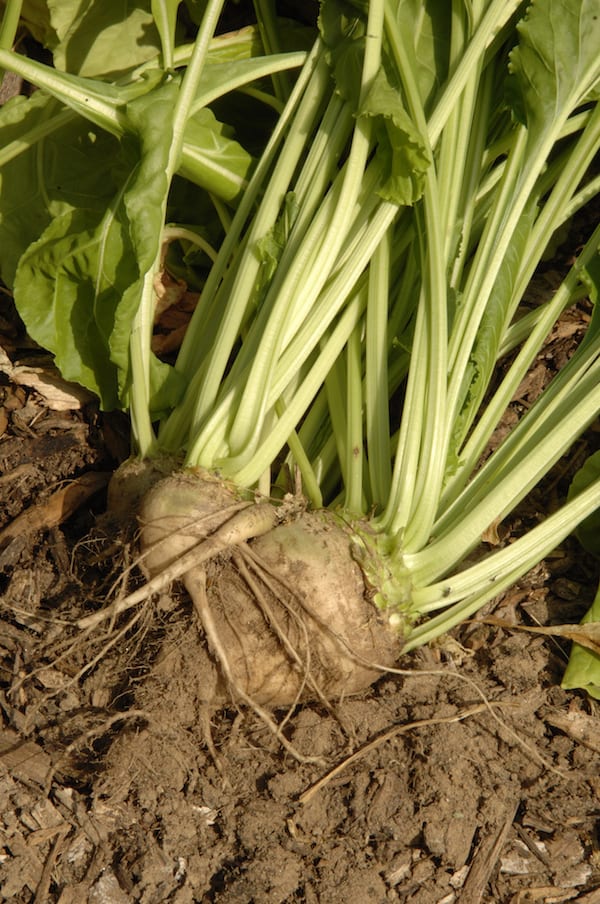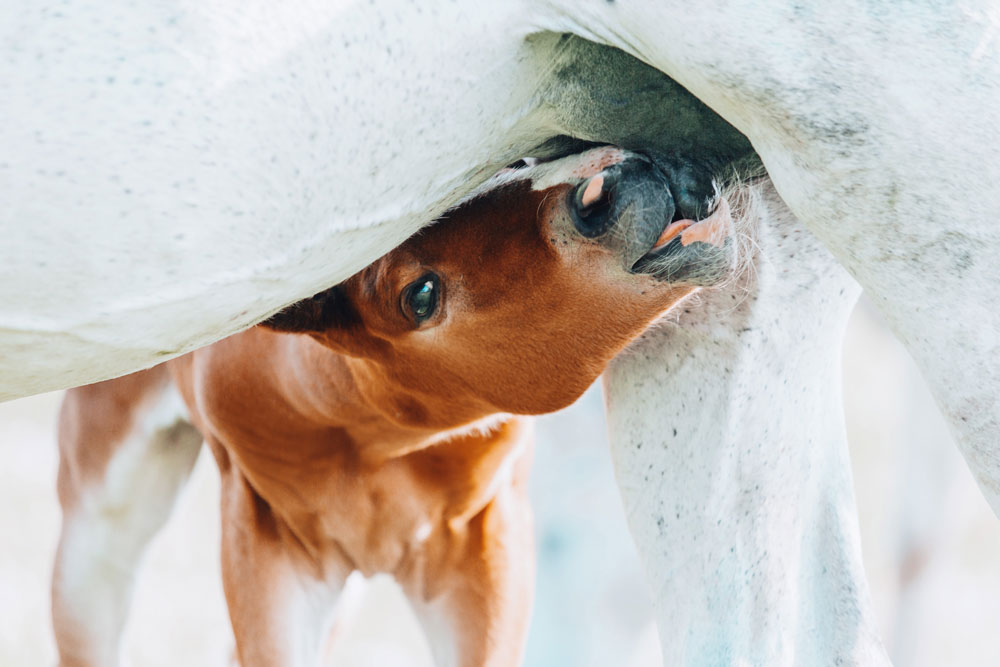If you’re driving through Minnesota, Michigan or North Dakota in late September or October, you might notice harvesters working hard to get that year’s supply of sugar beets into trucks and on the way to storage facilities. Sugar beets are naturally high in sucrose, so sugar beet farmers primarily grow the white tubers to provide an alternative to growing cane sugar.
Beet sugar sucrose is commonly used in food for humans, but you may also feed sugar beet — or beet pulp — to your horses (or know someone who does). Horses generally gobble up the dark, fibrous-looking stuff, making many horse owners believe that the feed must retain a high level of sugar. After all, beet pulp is made from sugar beets, right?
Actually, it’s a myth that beet pulp is high in sugar. To understand why beet pulp can — and should — be a part of your feeding regimen, take a closer look at what it’s made of. This high-fiber, non-heating feed is actually much lower in sugar than you might expect.
What is Beet Pulp?
Sugar beets are root vegetables that grow to about 12 inches long and typically weigh about two to five pounds when harvested. After sugar beets are harvested, they’re processed to extract the sugar. Beet pulp is a fibrous byproduct of sugar beets, after the sweet stuff has been taken out. Along the way, it’s chopped or sliced, and then dried to prevent it from molding. You can buy it in either a shredded or a pelleted format. Some companies add molasses to increase palatability, but it’s not recommended, as this can be detrimental to the horse’s digestive system.
Why to Consider Feeding Horses Beet Pulp
Since it’s technically a waste product from the sugar extraction industry, beet pulp is relatively inexpensive. But it’s also a complex carbohydrate that is fermented in the hindgut, making it a good choice to help enhance hindgi tract health. It’s an excellent source of digestible fiber and has a similar calorie profile as oats — but with fewer starches and sugars to cause problems if they reach the hindgut undigested. That makes it a good choice for hard-keeping horses, or for any horse that can’t spend all day outside grazing on high-quality forage. It’s also a great source of fiber for horses that may have dental problems, as soaked beet pulp is easy to chew.
How to Feed Beet Pulp to Your Horse
There’s an ongoing myth that feeding beet pulp can cause your horse’s stomach to rupture, as adding water to dried pulp causes it to increase in size. But, not to worry: unsoaked beet pulp will not cause your horse to choke, colic or explode.
However, most horse owners prefer to soak beet pulp before feeding. Mix beet pulp and water in small batches, and don’t leave it for more than 24 hours during warm weather, as it could begin to ferment. In the wintertime, it could freeze. In addition to increasing palatability, soaking beet pulp also helps hydrate horses.
Like any other forage, beet pulp can be fed alone or mixed with other feed. Just be sure to start with a small amount, and gradually increase it over time.
Beet Pulp is Not High in Sugar
Beet pulp is a great option when you want to add fiber and forage to your horse’s diet without adding excess sugar and starch. So while the sweet stuff is readily extracted from sugar beets, rest assured that it’s a myth that beet pulp is a high-sugar food for horses.
Photo Credit: 20120106-OC-AMW-0362 by U.S. Department of Agriculture. Used by permission via CC BY 2.0.




